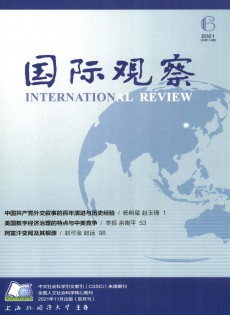Aspects of Internet use among older people: Sociological research
IF 0.6
Q4 ECONOMICS
引用次数: 0
Abstract
Information and communication technologies have become an integral factor in the daily lives of people over the last decade. Although their usage allows significant advantages, there are still a lot of people in the world who do not use such technologies. In industrialized countries, the reason for this is not in economic factors, but age seems to be a significant determinant of the digital divide. Recently, however, the number of older adults taking advantages of the Internet has been growing. Numerous authors state that a key aspect of successful aging is to remain actively involved in life in old age. In this regard, it is pointed out that online communication and new media present many new opportunities and challenges for the social inclusion of older people. The aim of this paper is to examine the attitudes and opinions of older people towards the use of the Internet and the reasons for its use. The research was conducted using the 2019 survey method on a sample of 240 people over the age of 65 residing in the Šibenik-Knin County in the Republic of Croatia. The results of the survey show that, although more than half of the respondents have an Internet connection, only a fifth own a computer or a laptop. One third of the respondents uses the Internet every day, and most of them did not attend a course to help them use it. They point out that they easily mastered the rules of the network, in which their family members gave them a support and help. Respondents most often search the Internet for the purpose of informing, especially about daily events, then for the entertainment, cultural education and communication with others. More than half of them have a profile on social networks, mostly on Facebook. Despite all this, they do not emphasize the great impact of the Internet on their lives, and believe that the Internet often takes up a lot of free time. Also, more than half of the surveyed population does not use the Internet because they are not interested in it, do not have the financial means to buy a computer. The reason is that they are suspicion of endangering their own security and privacy. However, those not using the Internet state that their accessing to information is not limited because of that. They also point out that the only motivation for starting using the Internet would be the necessity of communicating with their families.老年人使用互联网的各个方面:社会学研究
在过去的十年中,信息和通信技术已经成为人们日常生活中不可或缺的因素。尽管它们的使用带来了显著的优势,但世界上仍有很多人不使用这些技术。在工业化国家,造成这种情况的原因不是经济因素,而是年龄似乎是数字鸿沟的一个重要决定因素。然而,最近,利用互联网的老年人数量一直在增长。许多作者指出,成功变老的一个关键方面是在老年时仍然积极参与生活。在这方面,指出网络传播和新媒体为老年人的社会包容带来了许多新的机遇和挑战。本文的目的是研究老年人对使用互联网的态度和意见,以及使用互联网的原因。该研究采用2019年的调查方法,对居住在克罗地亚共和国Šibenik-Knin县的240名65岁以上的人进行了抽样调查。调查结果显示,尽管超过一半的受访者可以上网,但只有五分之一的人拥有电脑或笔记本电脑。三分之一的受访者每天都使用互联网,其中大多数人没有参加帮助他们使用互联网的课程。他们指出,他们很容易掌握网络规则,他们的家庭成员给他们的支持和帮助。受访者最常搜索互联网的目的是提供信息,特别是关于日常事件,然后是娱乐,文化教育和与他人交流。超过一半的人在社交网络上有个人资料,主要是在Facebook上。尽管如此,他们并没有强调互联网对他们生活的巨大影响,并且认为互联网经常占用大量的空闲时间。此外,超过一半的受访者不使用互联网,因为他们对互联网不感兴趣,也没有经济能力购买电脑。原因是他们涉嫌危害自己的安全和隐私。然而,那些不使用互联网的人表示,他们获取信息并不因此受到限制。他们还指出,开始使用互联网的唯一动机是与家人交流的必要性。
本文章由计算机程序翻译,如有差异,请以英文原文为准。
求助全文
约1分钟内获得全文
求助全文

 求助内容:
求助内容: 应助结果提醒方式:
应助结果提醒方式:


